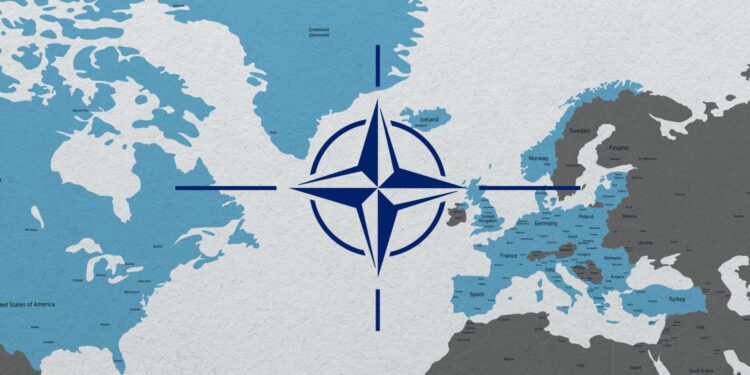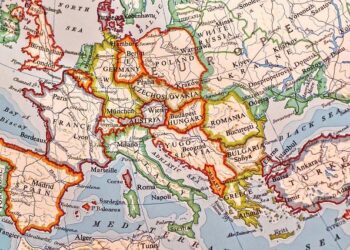Several NATO members along the alliance’s eastern flank have voiced strong support for Ukraine’s bid to join the military bloc, according to statements from Poland, Romania, and Lithuania reported by Reuters. As Russia’s ongoing conflict with Ukraine continues to reshape European security dynamics, these key Eastern European nations emphasize the strategic and political importance of integrating Ukraine into NATO, underscoring a unified front amid growing geopolitical tensions.
NATO East Flank Nations Intensify Support for Ukraine Membership Amid Security Concerns
Poland, Romania, and Lithuania have collectively voiced strong support for Ukraine’s bid to join the NATO alliance, emphasizing the strategic necessity of bolstering the alliance’s eastern defenses amid escalating regional tensions. These nations argue that Ukraine’s membership would act as a critical deterrent against further aggression in Eastern Europe, particularly in light of recent military maneuvers near their borders. Their unified stance highlights a growing consensus that security architectures must adapt swiftly to the evolving geopolitical landscape.
In a joint statement, representatives from these countries outlined key reasons for their backing, citing shared historical experiences, increased interoperability, and mutual security benefits. They propose a phased approach to membership, combined with enhanced military aid and intelligence sharing.
- Improved regional defense coordination
- Accelerated military integration programs
- Expanded joint training exercises
- Increased support to Ukraine’s defense infrastructure
| Country | Support Action | Expected Outcome |
|---|---|---|
| Poland | Diplomatic lobbying & military aid | Strengthened NATO eastern presence |
| Romania | Border security enhancements | Improved threat detection |
| Lithuania | Intelligence sharing initiatives | Enhanced situational awareness |
Poland Romania and Lithuania Advocate Strengthened Alliance Commitments to Deter Aggression
Poland, Romania, and Lithuania have jointly emphasized the necessity for the NATO alliance to reinforce its eastern defenses amid ongoing regional tensions. These countries assert that a robust and unified response is key to deterring potential aggression and bolstering the security of all member states along NATO’s eastern flank. Their call comes as the alliance continues to evaluate strategic commitments and enhance military readiness in Eastern Europe.
In addition to advocating for increased defense capabilities, the three nations strongly support the immediate inclusion of Ukraine in NATO. They highlight Ukraine’s role as a critical partner in maintaining stability across the region and stress that membership would send a decisive message against hostile actors. Below is a summary of the main points outlined by these eastern allies:
- Enhanced troop deployments: Increasing NATO presence on the eastern border
- Military aid: Continued support to Ukraine’s defense forces
- Strategic cooperation: Strengthening intelligence sharing and joint exercises
- Political unity: Solidifying commitment to collective defense under Article 5
| Country | Troop Reinforcement | Support for Ukraine | Key Initiative |
|---|---|---|---|
| Poland | +5,000 troops | Advanced military aid | Border infrastructure upgrades |
| Romania | +3,200 troops | Intelligence sharing | Cyber defense enhancement |
| Lithuania | +2,000 troops | Training support | Joint NATO exercises |
Experts Recommend Enhanced Military Integration and Political Backing for Ukraine’s NATO Aspirations
Military integration experts emphasize that advancing Ukraine’s NATO membership hinges on enhanced interoperability with the alliance’s eastern flank forces. This includes rigorous joint training exercises, shared intelligence frameworks, and synchronized command structures to ensure rapid response capability amidst ongoing regional tensions. Analysts assert that seamless coordination with Poland, Romania, and Lithuania-key frontline NATO members-would solidify deterrence measures and streamline defense logistics in critical border areas.
Simultaneously, political endorsement from these nations serves as a powerful catalyst. Leaders from the east flank countries have pledged robust diplomatic support, urging NATO’s broader membership to expedite Ukraine’s accession talks. Their unified stance underscores an underlying strategy to fortify European security while reaffirming commitment to democratic sovereignty. The following table highlights key NATO members’ positions on Ukraine’s membership, reflecting a growing coalition in favor of accelerated integration:
| Country | Military Support | Political Backing | Strategic Priority |
|---|---|---|---|
| Poland | High – multiple joint drills | Strong – vocal UN advocate | Border security enhancement |
| Romania | Moderate – intelligence sharing | Strong – parliamentary resolutions | Black Sea stability |
| Lithuania | High – rapid deployment units | High – diplomatic campaigns | Eastern European cohesion |
Insights and Conclusions
As NATO’s eastern members reaffirm their support for Ukraine’s bid to join the alliance, the debate over Kyiv’s membership gains renewed momentum amid ongoing regional security concerns. Poland, Romania, and Lithuania’s unified stance underscores the strategic importance they place on Ukraine’s integration, reflecting broader efforts to bolster defense cooperation in the face of persistent geopolitical challenges. The coming months will be critical as NATO navigates the complex dynamics surrounding Ukraine’s potential accession, balancing collective security interests with the evolving security landscape in Eastern Europe.
















